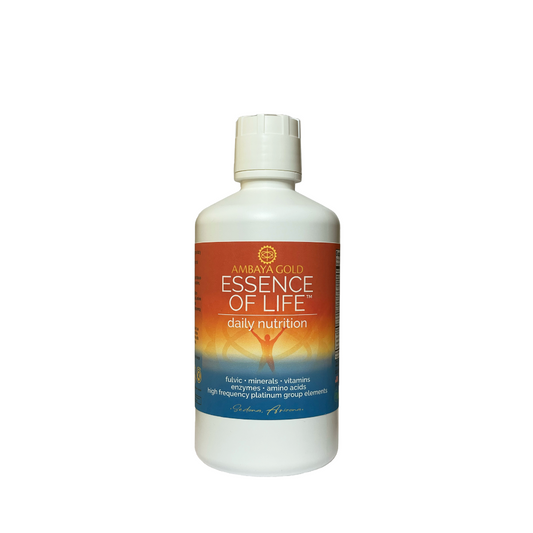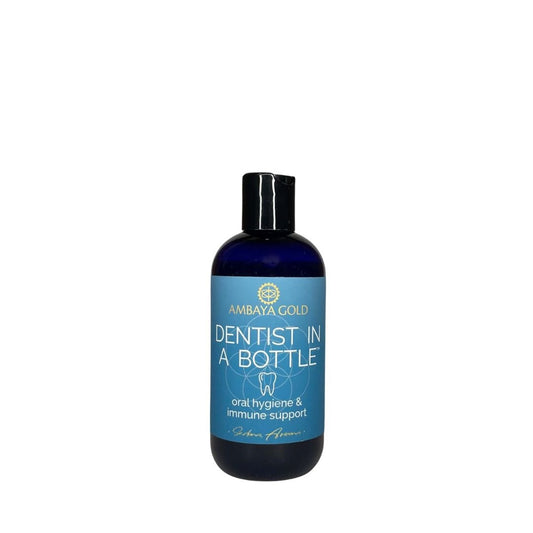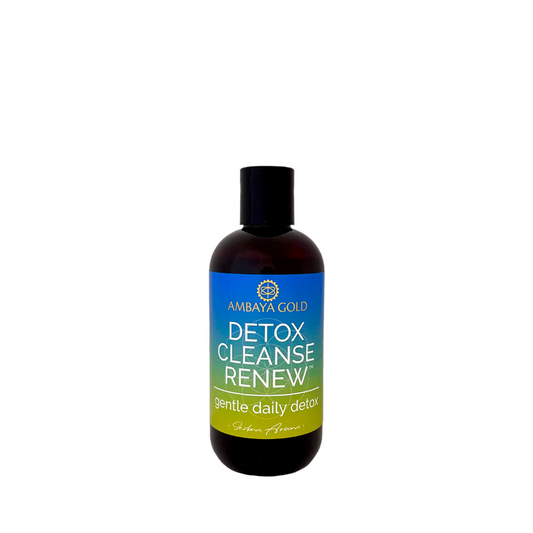Stress is an inevitable part of life, but its long-term presence can significantly accelerate the aging process and negatively impact our health. In addition to understanding the biological and psychological effects of stress, we can turn to holistic approaches for managing stress. This week’s blog hopes to provide valuable insights into how nutrition and spirituality can play a role in mitigating the aging effects of stress on our body.
The Biology of Stress
When we encounter stress, our body responds by releasing hormones such as cortisol and adrenaline. These hormones prepare us for a "fight or flight" response, increasing heart rate, blood pressure, and energy levels. While this response is crucial in short-term situations, long-term stress leads to sustained high levels of these hormones, which can have detrimental effects on our body and mind over time. By understanding the impact of stress and implementing effective stress management strategies, we can mitigate its effects and promote healthier aging. Taking proactive steps to reduce stress and enhance overall well-being is essential for maintaining a youthful and vibrant life.

Physical Effects of Long-Term Stress on Aging
1. Skin Aging
- Wrinkles and Fine Lines: Elevated cortisol levels break down collagen and elastin, the proteins that keep our skin smooth and firm. This results in the formation of wrinkles and fine lines.
- Dry Skin: Stress can impair the skin's barrier function, leading to dryness and decreased ability to retain moisture.
- Acne and Eczema: Stress can exacerbate skin conditions such as acne and eczema due to inflammation and altered immune responses.
2. Cellular Aging
- Telomere Shortening: Telomeres are protective caps at the ends of our chromosomes that shorten with each cell division. Stress accelerates telomere shortening, leading to premature cellular aging and increased susceptibility to age-related diseases.
3. Immune System Suppression
- Reduced Immunity: Prolonged stress weakens the immune system, making us more vulnerable to infections and slowing down the healing process.
- Inflammation: Stress-induced inflammation is a key driver of many health conditions.
4. Cardiovascular Health
- Hypertension: Stress can increase blood pressure, which can damage blood vessels and lead to hypertension, a major risk factor for heart disease and stroke.
- Heart Disease: Persistent stress can contribute to the development of atherosclerosis (hardening of the arteries) and increase the risk of heart attacks.
5. Cognitive Decline
- Memory and Learning Impairment: High cortisol levels can damage the hippocampus, the brain region responsible for memory and learning, leading to cognitive decline.
- Brain Health: Stress is associated with a higher risk of developing neurodegenerative diseases.

Psychological Effects of Stress on Aging
1. Mood Disorders
- Depression and Anxiety: Stress can alter brain chemistry, leading to mood disorders such as depression and anxiety, which further impact overall well-being and quality of life.
2. Sleep Disturbances
- Insomnia: Stress can interfere with sleep patterns, leading to insomnia and poor sleep quality. Lack of restful sleep accelerates aging and exacerbates other stress-related health issues.
3. Emotional Resilience
- Decreased Coping Ability: Long-term stress reduces emotional resilience, making it harder to cope with everyday challenges.

Mitigating the Aging Effects of Stress
1. Regular Exercise
- Physical Activity: Engaging in regular physical activity helps reduce cortisol levels, improve mood, and promote overall health.
- Mind-Body Practices: Yoga, tai chi, and similar activities can reduce stress and improve mental and physical well-being.
2. Healthy Colorful Diet
- Nutrient-Rich Foods: Consuming a balanced diet rich in antioxidants, vitamins, and minerals can combat the oxidative stress and inflammation caused by stress.
- Antioxidant-Rich Foods: The Rainbow Diet encourages consuming a variety of colorful fruits and vegetables, rich in antioxidants that combat oxidative stress. Antioxidants neutralize free radicals, which are harmful molecules that contribute to aging and many health issues diseases.
- Phytochemicals: Different colors in fruits and vegetables represent various phytochemicals, which have unique health benefits. For instance, red foods like tomatoes contain lycopene, which is known for its anti-inflammatory properties, while green foods like spinach are rich in chlorophyll, which helps detoxify the body.
- Hydration: Staying well-hydrated supports overall health and helps maintain skin elasticity.
3. Spiritual Nutrition and Emotional Well-being
- Mindful Eating: The Rainbow Diet promotes mindful eating practices, encouraging individuals to be present and conscious during meals. This practice not only improves digestion but also reduces stress by fostering a sense of calm and gratitude.
- Underrating: Under-eating, or eating until you're satisfied rather than stuffed, can improve digestion, aid in weight management, enhance energy levels, and promote overall health and longevity.

4. Adequate Sleep
- Sleep Hygiene: Establishing a regular sleep schedule and creating a relaxing bedtime routine can improve sleep quality and reduce stress.
- Restful Environment: Ensuring a comfortable and quiet sleep environment promotes better rest and recovery.
5. Stress Management Techniques
- Deep Breathing and Relaxation Exercises: Simple techniques like deep breathing, progressive muscle relaxation, and guided imagery can quickly reduce stress.
- Mindfulness and Meditation: Practicing mindfulness and meditation can lower stress levels and enhance emotional resilience.
6. Social Connections
- Supportive Relationships: Building and maintaining strong social connections provide emotional support and can buffer against the effects of stress.
- Community Engagement: Participating in community activities and volunteer work can foster a sense of purpose and reduce stress.
7. Professional Help
- Therapy and Counseling: Seeking professional help from therapists or counselors can provide strategies to manage stress and improve mental health.
- Medical Intervention: In some cases, medication or other medical interventions may be necessary to manage the physical and psychological effects of long-term stress.

The Benefits of Meditation on Stress
Meditation is possibly the most powerful tool for managing stress and mitigating its aging effects on the body. Numerous studies have demonstrated its effectiveness in reducing stress and promoting overall health.
Taken from the book The Rainbow Diet: Spiritual Nutrition “Meditators in the studies [Transcendental Meditation studies of 1970s] demonstrated a decrease in high blood pressure, increased exercise tolerance in those with angina pectoris, better cardiovascular efficiency, better nervous system reaction time, improved athletic performance, better response to stress as measured by galvanic skin changes, improvement in the hearing threshold, improved skills at sensory motor tasks, improved creativity testing results, increased scores on intelligence tests, increased mental speed and accuracy, increased long term memory, increased BEG synchronicity and coherence, and general decreased anxiety” (Gabriel Cousens, M.D., 166).
• Reduction of Cortisol Levels
- Lower Stress Hormones: Regular meditation practice has been shown to reduce cortisol levels, the hormone associated with stress. Lower cortisol levels help decrease inflammation and protect against many of the negative health effects of stress.
• Improved Mental Clarity and Focus
- Enhanced Cognitive Function: Meditation enhances attention and cognitive function by promoting a calm and focused mind. This can lead to improved memory and learning capabilities.
• Better Emotional Regulation
- Increased Emotional Resilience: Meditation helps individuals develop better emotional regulation, allowing them to respond to stressful situations more calmly and effectively. This improved emotional resilience can protect against mood disorders such as depression and anxiety.
• Improved Sleep Quality
- Enhanced Rest and Recovery: Meditation promotes relaxation and can improve sleep quality by reducing stress and anxiety, leading to more restful and restorative sleep.
• Physical Health Benefits
- Lower Blood Pressure: Meditation has been shown to lower blood pressure, reducing the risk of hypertension and cardiovascular disease
- Improved Immune Function: Regular meditation practice enhances immune function, making the body more resilient to infections and diseases.
Stress significantly impacts the aging process, affecting both physical and mental health. By incorporating the holistic approaches, such as eating a colorful diet rich in antioxidants, practicing mindful eating, and engaging in spiritual practices like meditation, we can mitigate the aging effects of stress. Meditation, in particular, offers profound benefits in reducing stress, improving cognitive function, and promoting overall health. Taking proactive steps to reduce stress and enhance overall well-being is essential for maintaining a youthful and vibrant life.
If you're interested, I highly recommend the book "The Rainbow Diet: Spiritual Nutrition" by Gabriel Cousens, M.D.
Resources
American Psychological Association (APA): Provides comprehensive information on how stress affects physical and mental health, including its impact on the cardiovascular system, immune response, and overall well-being.
Mayo Clinic: Offers insights into how long-term stress can affect various systems in the body, such as the nervous, cardiovascular, and endocrine systems.
Harvard Medical School: Discusses the physiological changes that occur due to stress and its impact on overall health.
National Institute of Mental Health (NIMH): Explains the biological and behavioral effects of stress, detailing its role in mental health disorders.
Cleveland Clinic: Provides a detailed overview of how stress affects different parts of the body and the importance of stress management.
National Center for Complementary and Integrative Health (NCCIH): Provides information on how meditation can reduce stress and improve overall health.
American Psychological Association (APA): Discusses the psychological and physiological benefits of meditation, including its effects on stress reduction.
Mayo Clinic: Offers insights into the health benefits of meditation, specifically how it can help manage stress and improve emotional health.
Harvard Medical School: Discusses the effects of mindfulness meditation on stress and overall health, including its role in reducing stress-related symptoms.









